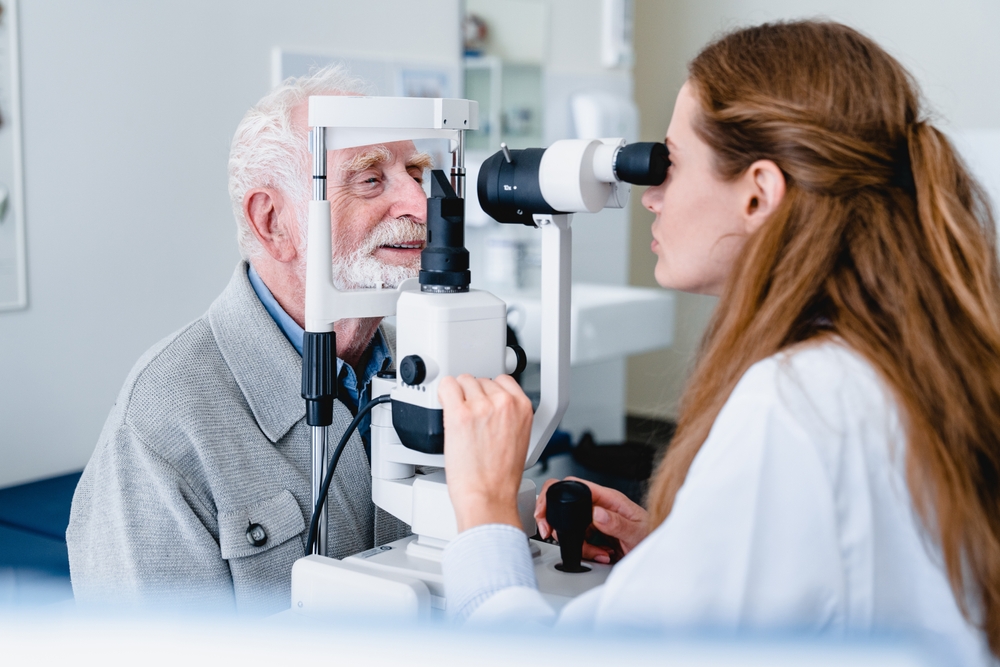
Glaucoma is a group of eye conditions that can damage the optic nerve, which is responsible for transmitting visual information from your eyes to your brain. This damage is often caused by increased pressure within the optic nerve, known as intraocular pressure (IOP). If left untreated, glaucoma can lead to permanent vision loss and even blindness.
Causes and Risk Factors of Glaucoma
The exact causes of glaucoma are not fully understood, but several factors can increase your risk of developing the condition:
• Increased Intraocular Pressure (IOP): High IOP is the primary risk factor for glaucoma. This can be caused by an imbalance between the production and drainage of fluid within the eye.
• Age: The risk of glaucoma increases as you get older, particularly after the age of 60.
• Family History: If you have a close relative with glaucoma, you are more likely to develop the condition.
• Race: Certain racial and ethnic groups, such as African Americans and Hispanics, are at a higher risk of developing glaucoma.
• Medical Conditions: Conditions like diabetes, high blood pressure, and certain cardiovascular diseases can increase your risk of glaucoma.
The Importance of Regular Eye Exams for Early Detection
Regular eye exams are crucial for the early detection and management of glaucoma. During these examinations, your eye doctor can measure your IOP, assess the health of your optic nerve, and identify any signs of vision loss or damage. Early detection is essential, as glaucoma can often progress without noticeable symptoms in the early stages.
How is Glaucoma Diagnosed?
Your eye doctor will use a combination of tests to diagnose glaucoma, including:
• Tonometry: This test measures the pressure inside your eye (IOP) using a specialized instrument.
• Ophthalmoscopy: Your doctor will examine the optic nerve at the back of your eye to look for signs of damage.
• Perimetry: This test maps your visual field to identify any blind spots or areas of reduced vision.
• Gonioscopy: This procedure allows your doctor to examine the drainage angle of your eye, which is important for determining the type of glaucoma you may have.
• Optical Coherence Tomography (OCT): This imaging test provides detailed information about the structure of your optic nerve and retina.
How is Glaucoma Treated?
If you are diagnosed with glaucoma, your eye doctor will work with you to develop a treatment plan that best suits your individual needs. The primary goals of glaucoma treatment are to lower your IOP and prevent further vision loss.
Eye drops are often the first line of defense in glaucoma management. These medications work by either reducing the production of fluid in the eye or improving the drainage of fluid, which helps lower IOP. In some cases, your doctor may prescribe oral medications to help lower your IOP. These medications work by reducing the production of fluid in the eye.
If eye drops and medications are not effective in controlling your IOP, your doctor may recommend one or more surgical procedures. These include:
• Trabeculectomy: This is a common surgical procedure that creates a new drainage pathway for fluid to leave the eye, thereby reducing IOP.
• Glaucoma Drainage Devices: These are small, implanted devices that help improve the drainage of fluid from the eye.
• Laser Procedures: Techniques like selective laser trabeculoplasty (SLT) and laser iridotomy can help improve fluid drainage and lower IOP.
• Minimally Invasive Glaucoma Surgery (MIGS): These are newer, less invasive surgical options that can help lower IOP with a reduced risk of complications.
Your eye doctor will work with you to determine the most appropriate surgical treatment based on the type and severity of your glaucoma.
Book Your Comprehensive Eye Exam with Eyecare Center of Leesburg Today
Early detection and treatment are crucial for managing glaucoma and preserving your vision. Regular eye exams can help identify the condition before significant vision loss occurs. If you are diagnosed with glaucoma, work closely with your eye doctor to develop a comprehensive treatment plan that may include a combination of eye drops, medications, and potentially surgical procedures. By taking a proactive approach to your eye health, you can help protect your vision and maintain your quality of life.
At Eyecare Center of Leesburg, we are dedicated to providing comprehensive glaucoma care. If you have concerns about your eye health or are due for a routine eye exam, visit our office in Leesburg, Florida, or call (352) 787-1956 to schedule an appointment today.












